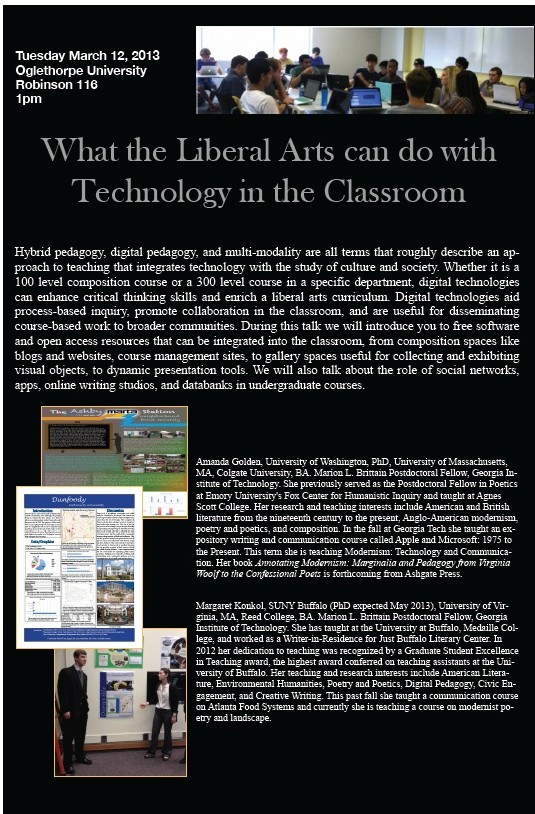Brittain Fellows Amanda Golden and Margaret Konkol will deliver a presentation on digital pedagogy to the faculty at Oglethorpe University. See the poster and abstract for their presentation below.
Abstract:
Hybrid pedagogy, digital pedagogy, and multi-modality are all terms that roughly describe an approach to teaching that integrates technology with the study of culture and society. Whether it is a 100 level composition course or a 300 level course in a specific department, digital technologies can enhance critical thinking skills and enrich a liberal arts curriculum. Digital technologies aid process-based inquiry, promote collaboration in the classroom, and are useful for disseminating course-based work to broader communities. During this talk we will introduce you to free software and open access resources that can be integrated into the classroom, from composition spaces like blogs and websites, course management sites, to gallery spaces useful for collecting and exhibiting visual objects, to dynamic presentation tools. We will also talk about the role of social networks, apps, online writing studios, and databanks in undergraduate courses.

